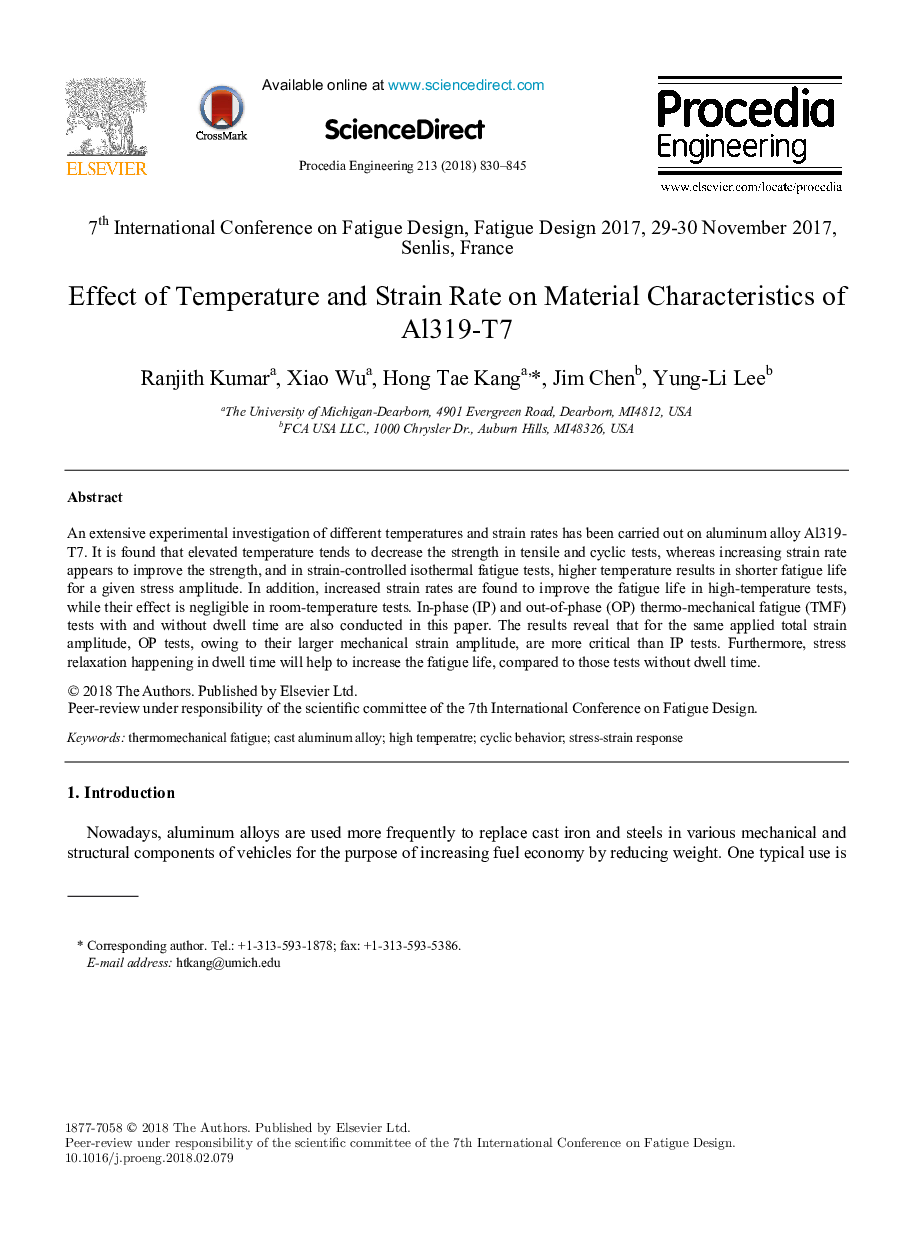| Article ID | Journal | Published Year | Pages | File Type |
|---|---|---|---|---|
| 7225807 | Procedia Engineering | 2018 | 16 Pages |
Abstract
An extensive experimental investigation of different temperatures and strain rates has been carried out on aluminum alloy Al319-T7. It is found that elevated temperature tends to decrease the strength in tensile and cyclic tests, whereas increasing strain rate appears to improve the strength, and in strain-controlled isothermal fatigue tests, higher temperature results in shorter fatigue life for a given stress amplitude. In addition, increased strain rates are found to improve the fatigue life in high-temperature tests, while their effect is negligible in room-temperature tests. In-phase (IP) and out-of-phase (OP) thermo-mechanical fatigue (TMF) tests with and without dwell time are also conducted in this paper. The results reveal that for the same applied total strain amplitude, OP tests, owing to their larger mechanical strain amplitude, are more critical than IP tests. Furthermore, stress relaxation happening in dwell time will help to increase the fatigue life, compared to those tests without dwell time.
Related Topics
Physical Sciences and Engineering
Engineering
Engineering (General)
Authors
Ranjith Kumar, Xiao Wu, Hong Tae Kang, Jim Chen, Yung-Li Lee,
